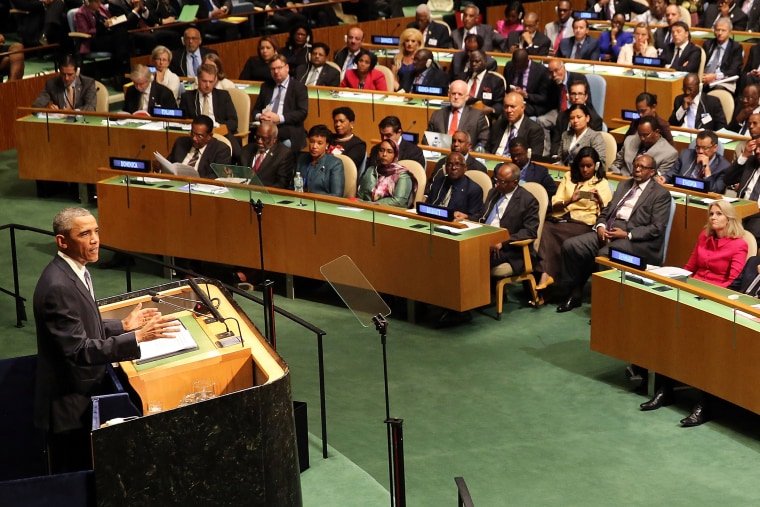[T]o the governor I said, in a world in which foreign affairs continue to be more important than ever, in a dangerous world with which we have ever more dealings, shouldn't we be thinking about senators for the presidency, and not governors? He listened closely, nodded, then shook his head. No, he said, governors still have the advantage. Why? Because foreign policy still comes down, always, to your gut, your instincts. And your instincts are sharpened by the kind of experience you get as a chief executive in a statehouse, which is constant negotiation with antagonists who have built-in power bases. You learn what works from success and failure with entrenched powers that can undo you, from unions to local pressure groups to unreliable allies. Being a governor is about handling real and discernible power.
The case for foreign policy expertise
The Colbert-ification of foreign policy thinking: a Republican governor values his "gut" more than knowledge.

In recent generations, most competitive presidential candidates have come from either the Senate or a governor's office, and both groups have some built-in strengths.
Senators can argue, "I've worked on a wide range of issues, including domestic and foreign policy, while learning how to shape federal law." Governors, meanwhile, can argue, "I've been a chief executive, so I know how to run an administration, and I can bring a fresh perspective to D.C."
Which pitch is correct? Well, depending on an individual's skill level, they both are.
But foreign policy tends to be the senators' trump card. Border governors sometimes claim some limited interaction with foreign officials -- and some claim to be able to see Russia from their homes -- but in general, international affairs is a federal issue. A smart, hard-working senator on the Foreign Relations Committee will probably have a greater understanding of global affairs than most sitting governors combined.
All of which brings us to Peggy Noonan and her recent conversation with a GOP governor and likely 2016 presidential candidate, whom the Republican pundit didn't identify by name. Their exchange about foreign policy was striking.
Dan Drezner, a center-right scholar on international affairs, responded, "Sweet Jesus, I hope the governor who told [Noonan] this never handles foreign affairs." Drezner added that the comments themselves help represent the "twilight of foreign policy expertise."
I agree, though I'd call it something else: "The Colbert-ification of foreign policy thinking."
What the unnamed governor argued, in effect, is that knowledge is overrated. In a complex world, filled with constantly changing challenges and unpredictable outcomes, the Republican sees himself qualified to handle foreign affairs because of his finely tuned "gut" and "instincts."
Funny, I seem to recall another recent presidential candidate saying his intuition had far more value than awareness of world events. His name was George W. Bush.
I'm not saying candidates with limited experience on foreign policy are necessarily unqualified for the White House. There's all kinds of evidence to the contrary. These candidates can tout their judgment, present their vision, and ask for voters' trust.
But for Noonan's source to argue that it's better to trust a governor's gut than a senator's (or former Secretary of State's) actual expertise is hard to take seriously.
Postscript: As for the identity of Noonan's unnamed governor, Steve M. argues that it's likely New Jersey Gov. Chris Christie (R). He makes a persuasive case.